 Stories
Stories
August 25, 2021 • 4 min read
German Adalid Mejía (35) is a father of two and an entrepreneur.
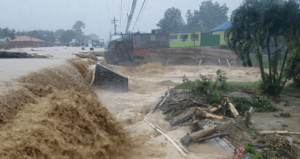
Houses in San José del Cayo were completely submerged by the floods.
When Hurricanes Eta and Iota hit Honduras in November 2020 his village of San José del Cayo in Yoro in the Municipality of El Progreso was one of many areas left devastated.
San José del Cayo lies in the most vulnerable low area in the region and its houses were completely submerged by floods. Homes and entire livelihoods were lost.
Surviving two hurricanes
Local merchant, widower and father of two girls, German escaped with his life by taking refuge with his family on the second floor of a house during the severe flooding.
“It was difficult for everyone with water coming in on top of us. The community thought we were all going to drown. I had a business and I lost it. So many people lost everything. It was very hard for us.” he said.
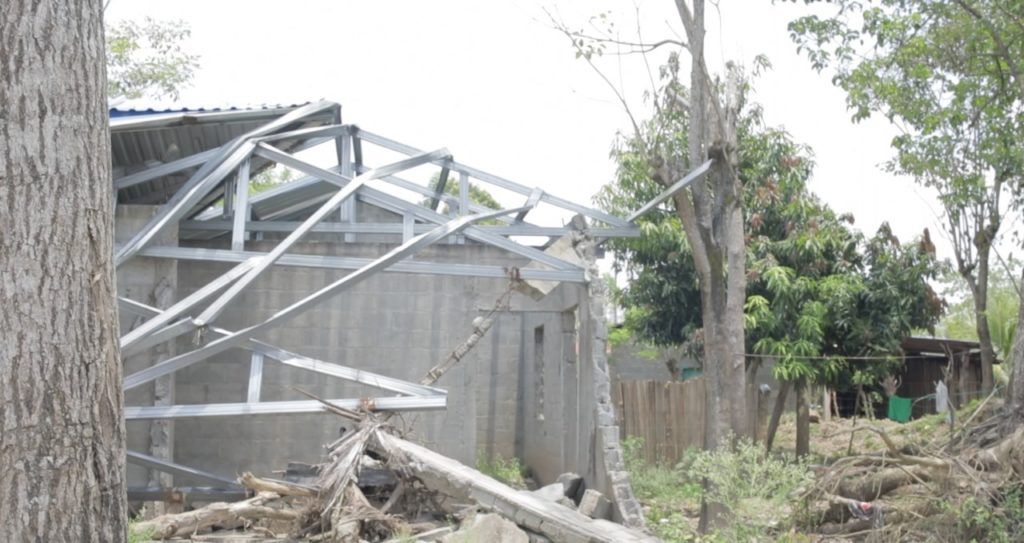
In November 2020, Hurricane Eta closely followed by Hurricane Iota, caused floods and landslides inflicting more damage to the already affected communities.
Eta, a category 4 hurricane with winds of 240 kilometres per hour and rains that caused severe flooding and landslides, affected the poorest communities in vulnerable, at-risk areas.
Thirteen days later, while the country was trying to recover from the devastation of Eta, Hurricane Iota struck Honduras. A category 5 hurricane, with winds of up to 260 kmph, IOTA became the most powerful hurricane of the season.
Iota rapidly turned into a tropical depression that followed almost the same trajectory as Hurricane Eta, causing floods and landslides which inflicted more damage to the already affected communities.
Stronger together
In response, our staff in Honduras reached out to local partners FIPAH (Fundación para la Investigación Participativa con Agricultores de Honduras) and Water Mission which receives support from USAID’s Bureau for Humanitarian Assistance (BHA).
Together, we put in place a multisectoral emergency response focused on saving lives, promoting early recovery and improving food security.
Help was promptly delivered in nine of the most affected departments of Honduras: Gracias a Dios, Yoro, Cortés, Atlántida, Colón, Olancho, Francisco Morazán, Lempira and Intibucá.
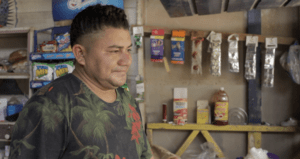
German in the ‘pulperia’ business. He was able to rebuild thanks to the financial assistance.
From the start our GOALies coordinated with the National Risk Management System (SINAGER) and local authorities already involved in response efforts. That part of the work focused on improving living conditions in the shelters and homes affected by the storms by providing WASH (water, sanitation, and hygiene) but also supporting the restoration of livelihoods.
As part of the emergency response temporary shelters for vulnerable families were provided as well as access to clean water, water filters, latrines, and hygiene kits.
All this was made possible thanks to the community mobilization and participation.
Rebuilding livelihoods with financial support
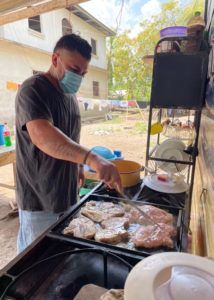
German was able to invest in his small neighbourhood store which now has expanded to a lunch counter.
How does a family rebuild it’s livelihood after such an event?
A critical support to those affected by the Hurricane was financial assistance in the form of cash transfers. These helped people meet their essential needs such as water, food and other vital services and goods.
German was amongst those that benefitted from the financial support. He used the money to recover what he had lost in the floods. This also allowed him to restart his ‘pulperia’ business – a small grocery store serving food – to support his mother and two daughters.
“Thanks to GOAL and the cash assistance I was able buy things to start over… I was able to get back to work again”
To date, cash transfers have benefited 6,852 people who, like German, are struggling to regain their livelihoods in the hardest-hit areas.
Cash grants play an important role in helping people after emergencies. There is evidence that they empower affected people, helping them regain control of their basic needs and how best to meet them.
Hope amongst the rubble
Eight months after the devastation caused by Hurricanes Eta and Iota, the country is still struggling to rebuild essential infrastructures but also to ignite economic recovery.
Amid the Covid-19 pandemic, the new hurricane season is approaching, and the first rain of 2021 brings back painful memories from previous hurricanes.
This means helping German but also many others in the communities in Honduras affected by disastrous floods and landslides regain hope and build a future for themselves and their loved ones.
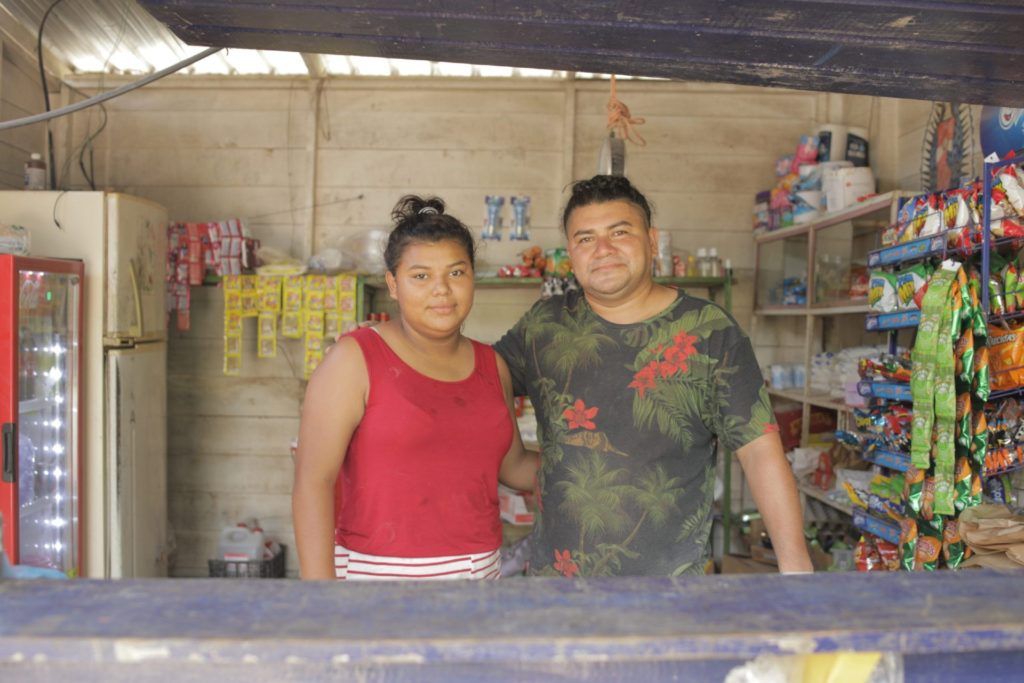
German Adalid Mejía (35) is a father of 2 and an entrepreneur who benefitted from a multipurpose cash assistance activity of USAID´s Humanitarian Response to North Atlantic Major Storm Events in Honduras.
